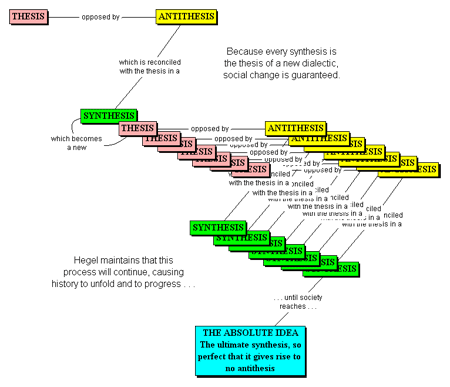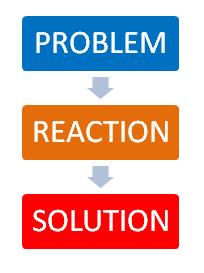How We Escape the Two Party System and The Dangers Associated
When you get into the weeds of politics you realize that it is difficult to pin a person down and slap a label on them that distinguishes their political alliance. However, when we communicate with one another we use simple vocabulary to describe our position. When communicating with the masses we categorize political position according to a simple left-right scale. This distilled use of vocabulary is not ideal and in fact it is dangerous.
As a consequence, this is likely the reason we have an entrenched two-party system here in the United States. If the majority of our voters have already bought into the two-party system and accept the premise that every topic is binary with either a liberal or a conservative solution, then how can a party with views outside of this paradigm ever expect to win office? This use of a single left-right scale makes it impossible to describe a libertarians’ views on government.
Libertarians oppose government involvement in economic affairs, but they also oppose government involvement in the personal lives of peaceful people. By this definition would you categorize libertarians as “rightists” (because they promote free enterprise) or “leftists” (because they oppose government meddling in people’s private affairs)? To everyday Americans who operate from the left-right distinction, a libertarian would be a walking contradiction. Thus, as a communication tool, the left-right distinction fails political outsiders.
Despite the publics dissatisfaction with the left-right – “liberal-conservative” – lingo, the widespread use continues. This is likely in large part due to the sheer convenience. Think about it, from the perspective of someone who communicates to the masses about politics. They can simply state that so and so politician is left of this president or right of that president. The description takes only seconds and does not tax the attention of the viewer.

This semantic laziness becomes dangerous when you begin to realize that we are trapped within a system of perpetual conflict and war. We have inherited a system by which through constant conflict and the continual merging of opposite ideologies, we are told that we will somehow make progress towards perfecting our way of life. The root of the problem is that these opposite ideologies are established by either the extreme right or the extreme left belief systems. You can choose Pepsi or you can choose Coke. You can choose the blue puppet, or you can choose the red puppet. We have this illusion of choice but because we have distilled our choice down to this poorly defined left-right paradigm we lose sight of our common interests as individuals. Regardless of intentionality the result of this system is that the masses are divided and conquered. While we fight amongst ourselves, our rights and liberties are being eroded away from beneath our feet.
The Dialectic
The dialectic is a philosophy, or a way of thinking, that goes all the way back to Plato’s writings on Socrates and how he used the dialectic method to establish truth through logical arguments amongst two or more people with conflicting ideas. It was not until Georg Wilhelm Friedrich Hegel’s Hegelian dialectic method that we learned the true danger of this framework. Hegel twisted the dialectic method into a system for guiding our thoughts and actions into conflicts to lead us to a predetermined solution.
Imagine a political spectrum and you have an individual that is firmly rooted at one of the two extremes. If you wanted to change that person’s fundamental belief structure, to that of the opposite extreme, how might you approach this seemingly impossible goal? The answer is that you would start by rejecting the very concept of absolutes in favor of constant change. Hegel’s way of thinking is that everything is constantly changing and must forever adapt to the eternal change or moral relativism. If everything is just shades of gray, then nothing can be black or white, or absolute. Next you would deploy the Hegelian strategy which can be accomplished through a process of tension and resolution.
THESIS + ANTITHESSIS = SYNTHESIS
PRO + CON = CONSENSUS (COMPROMISE)
The Hegelian Formula is expressed as follows: Thesis represents an idea or opinion, antithesis represents the counter-opinion or opposite idea, synthesis represents the domain where thesis and antithesis intersect and overlap. The dialectic synthesis represents the consensus, or the “compromise”, between the thesis and the antithesis.

Now if absolutes are rejected, as Hegel argues they should be, then this opens the formula up to the possibility of a positive feedback loop. Once the circular argument has reached synthesis, a new thesis can be created, and the process begins anew, incrementally and progressively moving forward toward the next predetermined outcome.
So now that we understand the Hegelian Formula let us turn our attention back to the task of changing someone’s fundamental belief structure. If we take John Doe’s initial views on a given subject to be our starting thesis, then we can bring in a skilled debater to present the complete opposite view on that subject, let this be our antithesis. During the debate John Doe’s initial views are challenged and he reaches a compromise with the debater on certain points. This consensus changes his initial views and moves them ever so slightly in the direction of his opponent’s views. This new compromised view represents the dialectical synthesis. Now after enough of these circular arguments take place John will find that his new views have changed so drastically that when compared to his initial views on the subject, they represent the original opposing view. This illustrates the power of the Hegelian dialectic and demonstrates its use as a powerful change agent.
The Hegelian dialectic reduced to its simplest form could be summed up as problem, reaction, solution. The “agent of change” employing the strategy creates the problem or crisis, foments the reaction (tension), then attempts to control the outcome by providing the solution (resolution).

Now that you have wrapped your head around the concept you can research on your own to learn how it was adopted by Karl Marx, see Marx’s Dialectical Materialism. You will learn that in Marxist intellectual circles, around the turn of the century there was a growing trend within the Marxist movement that a better way to change the world is not abruptly and violently at the point of a bayonet, (traditional Marxist revolution), but rather it should be done slowly and incrementally by transforming individuals and their cultural institutions. By taking this slow incremental approach you can control a country as effectively as if you conquered it militarily.
So, if we know that the Hegelian Dialectic is a tactic that has been weaponized by Marxists to transition Capitalistic societies towards Socialism and ultimately to Communism then how do we put a stop to it? Afterall we are trapped in a left-right system where the majority opinion is formed by either the extreme right or the extreme left belief systems. Whether we are aware of it or not, we are vulnerable to the dialectic.
I propose we start by recognizing that government and the governed are at odds with each other. Thomas Paine rightfully pointed out that society and government are wholly different in Common Sense when he wrote, “Society in every state is a blessing, but government even in its best state is but a necessary evil in its worst state an intolerable one…” What we need is to devise a set of more descriptive terms that unite the governed and remind them of this distinction.
Centralists-Decentralist
I have been thinking through this problem, the problem of the two-party system we find ourselves trapped in. Over these past two years I have come to the conclusion that greater centralization inevitably leads to the consolidation of power and ultimately corruption of the system at the expense of the governed. As a result, I have since begun to view individuals not as either “left” or “right, or “liberal” or “conservative, but instead as being either a centralist or a decentralist.
I recently read the essay, which by the way was the inspiration for this blog post, Coercivists and Voluntarists by Donald J. Boudreaux. In the writting he points out that this was originally suggested by Professor Richard Gamble, who teaches history at Palm Beach Atlantic University. However, he also pointed out that this “centralist-decentralist” language contains its own potential confusion when he referred to Clint Bolick’s book, Grassroots Tyranny, which illustrates problems at the local level of government.
Boudreaux believed that this “centralist-decentralist” language was a vast improvement over the muddled “left-right” language but believed it could be taken a step further. In his essay he proposes we adopt the following set of political labels: “Coercivist-Voluntarist.” In his writing he lays out his case:
At one end of this spectrum are Coercivists. Coercivists believe that all order in society must be consciously designed and implemented by a sovereign government power. Coercivists cannot fathom how individuals without mandates from above can ever pattern their actions in a way that is not only orderly, but also peaceful and productive. For the Coercivist, direction by sovereign government is as necessary for creation of social order as meticulous craftsmanship of a watchmaker is necessary for the creation of a watch.
At the other end of the spectrum are voluntarists. Voluntarists understand two important facts about society that Coercivists miss. First, voluntarists understand that social order is inevitable without coercive direction from the state as long as the basic rules of private property and voluntary contracting are respected. This inevitability of social order where such rules are observed is the great lesson taught by Adam Smith, Ludwig von Mises, F.A. Hayek, and all of the truly great economists throughout the ages.
Second, voluntarists understand that coercive social engineering by the government – far from promoting social harmony – is fated to ruin existing social order. Voluntarists grasp the truth that genuine and productive social order is possible only when each person is free to pursue his own goals in his own way, constrained by no political power. Coercive political power is the enemy of social order because it is unavoidably arbitrary – bestowing favors for reasons wholly unrelated to the values the recipients provide to their fellow human beings. And even if by some miracle the exercise of political power could be shorn of its arbitrariness, it can never escape being an exercise conducted in gross ignorance. It is a simpleton’s fantasy to imagine that all the immense and detailed knowledge necessary for the successful central direction of human affairs can ever be possessed by government.
He goes on to state that, “society emerges from the cooperation of hundreds of millions of people, each acting on the basis of his own unique knowledge of individual wants, talents, occupations, and circumstances.” The Coercivist-Voluntarist vocabulary is superior to the Left-Right, or Liberal-Conservative, vocabulary because as Boudreaux rightfully points out, it distinguishes liberty’s friends from its foes. He goes on to conclude his essay by stating, “The true voluntarist fears nothing as much as he fears coercive power – whether exercised by those on the “left” or the “right.”
At its core this is what the Hegelian Dialectic is, a means of coercing the governed to a predetermined destination. By arming the governed at the individual level with a set of descriptive terms. Terms that specifically point to this vulnerability. We can both guard against attacks on Capitalism like those posed by the Hegelian Dialectic, and we can escape the two-party system by allowing political outsiders like Libertarians to participate. This simple descriptive tweak would arm the governed at the level of the individual with the discernment needed to distinguish liberty's friends from its foes.
If you found this article interesting and would like to share a comment with me, please feel free to reach out to me directly via my personal email at (drew@drewredifer.com).
Return to